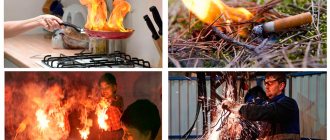Guardianship and trusteeship authorities
Before understanding the possibility of contacting the guardianship authorities, it is necessary to understand what kind of institution it is and its main functions.
According to the Law of the Russian Federation “On Guardianship and Trusteeship”, this is an executive body whose main functions are:
- monitoring the observance of rights in cases of minors. This category also includes persons with healthy, capable parents;
- Facilitating the resolution of disputes between relatives regarding the rights of a minor;
- Compliance with control over the property rights of the child;
- In situations determined by law, guardianship authorities have the right to remove children and place them in specialized institutions.
- They give permission to adopt the child.
Guardianship authorities have territorial jurisdiction and their powers are distributed across each municipal district.
How to contact the guardianship authorities
If neighbors threaten or beat children, then in this case it is necessary to file a complaint with law enforcement agencies or the guardianship and trusteeship authorities. Employees of the relevant services are obliged to immediately respond to the application and come to check the family. In addition, they must take all necessary measures against parents and hold them accountable.
You can turn to several images, but before turning to them you need to be sure that violence is actually being committed against a minor, and his rights are not respected.
You can contact this institution in one of the following ways:
- By phone call;
- Personal submission of the application;
- Write a message by email;
- Sending documents by mail;
- An appeal to the court, after which the case is considered in court.
It is necessary to contact based on the current situation. If there is no visible threat to the minor, but there are still suspicions of violations, then it is better to contact the police. The main catch in all appeals is that you need to contact law enforcement agencies openly, and this can lead to further troubles. There are options for contacting a government agency.
Anonymously
Often, parents who do not respect the rights of their child can be dangerous to others, so many, not wanting unpleasant consequences, want to make an anonymous appeal. Many will wonder whether an anonymous statement will have any effect.
Guardianship authorities check anonymous letters, but it would still be better to sign the letter, after which the executive service will have a better chance of making an official statement. According to the law, a written appeal that does not have an author is not considered by the guardianship and trusteeship authorities. But in this case, there is also a minus in the official appeal. If the information reported by the citizen is not confirmed, this may result in the family going to court for libel.
Statement
The application can be submitted either in paper or electronic form. Thanks to modern technology, you can write a request by email. But in this case, it will not be possible to do this anonymously, since all data can be easily verified, including the location of the device from which the information was transferred. Checking messages about violations of children's rights is one of the mandatory functions assigned to the guardianship authorities, therefore they check all messages sent and are obliged to respond to them properly.
Responsibility for handling
There is no responsibility as such for contacting executive authorities, even if the data is not confirmed. The only point may be a written response complaint for slander. It will not have serious consequences. But it is important to remember that before contacting the guardianship and trusteeship authorities, you must be directly convinced that the child is in danger. All children are individual and difficult to educate, and each case is unique.
My neighbors are beating my child. Where should I contact?
Very often we receive letters to the editor in which readers ask what to do if you can hear neighbors offending a child behind the wall, and he cries?
Where can you complain in this case? Who and what measures will be taken to check the situation in the family? We spoke with lawyers Victoria Dergunova and Anastasia Tyunyaeva from the Lawyers Help Children foundation.
Who, where and when can witness violence against a child?
Victoria Dergunova : Every person at least once in their life has become an involuntary witness to violence against children. Cruel treatment can manifest itself not only in beatings or torture, deprivation of food or clothing due to the weather, but also in banal shouting and insults that degrade human dignity and harm mental health.
Adults—the child’s family and friends, teachers, or just passers-by—can do this both systematically and episodically. Aggression towards a child can catch him anywhere: in a public place, garden, school, on the street, playground, and at home, where the child especially needs protection, safety and care.
Attempts to help a child often turn out to be useless: firstly, to requests to stop offending him, an adult may either not react at all, or fight back and direct his aggression towards the person who turned to him, or ask “not to interfere in family affairs,” because parents “ know better how to raise their children” and they are free to choose methods of influencing them.
My neighbors constantly yell at their children. Can I call guardianship?
Why are witnesses not always ready to intervene in a situation?
Many people are at a loss from not knowing what they can do in principle in a situation of unacceptable treatment of a child and whether the treatment that raised their questions is so unacceptable and unacceptable, because in childhood we were all spanked on the butt, someone was even beaten with a belt, in a corner and deprived of their favorite toys.
People often have concerns that their appeals to government agencies will worsen the situation of the child - for example, even if he is not taken away from the family and transferred to an orphanage, where there is a guarantee that the parents will not treat him even worse with the aim of intimidating, instilling respect and obedience in this way. Some are afraid that the facts stated in their statements will not only not be confirmed, but will also turn against them.
Where can you turn if you still decide to do this? What is the algorithm of actions?
Anastasia Tyunyaeva : If you see physical force being used against a child in a public place, you hear children’s screams and crying behind the wall of the apartment, the characteristic sounds of blows and struggles, you can safely:
1. Contact the police by dialing 112 or 102. If you know the number of the district police department at the place where the crime was committed or the local police officer, you can call directly.
2. Provide identifying information by identifying yourself and giving the address of the place where the alleged child abuse is occurring. Anonymous messages, as a rule, do not cause the proper reaction from law enforcement officials, and significantly reduce the likelihood of conducting an investigation into them, and even more so are not grounds for initiating a criminal or administrative case.
3. Report what happened, describing what you see and hear and the circumstances known to you.
4. Provide additional information, for example, about the child and his parents, if known: who lives with the child, what they do, what kind of life they lead. Pay special attention to moments that seem suspicious or strange to you: the child is accompanied by unknown adults, drunk people are regularly in the apartment late at night, noise and loud music are heard, garbage accumulates near the door, including empty bottles of alcoholic drinks, in the family Serious conflicts often arise, fights, beatings, cries are heard, including for help, and so on.
5. Make sure the message is registered. Ask the officer on duty recording the application to tell you its registration number. Having received such a number, you will subsequently be able to familiarize yourself with the verification material on your application. If it was not possible to register a report of a crime by phone (they refused to give the statement number, they spoke rudely and hung up, there was a bad connection), go to the nearest district police department (stronghold), write and submit a statement about the possible commission of a crime. You can find a sample application on site.
In the statement, state in detail and consistently what exactly you personally saw and heard: the time, place, circumstances of the events that occurred, the frequency with which they are repeated, if we are talking about systematic violence against a child. You can also indicate what you have heard, seen, know from other people, what you know about the lifestyle of the family in which the child lives, report facts that cause you anxiety, fear or apprehension. Indicate the need to request CCTV footage (if any).
Indicate who else can confirm the information you are reporting. Identify witnesses who may know about the circumstances of the violence: their names, telephone numbers and residential addresses.
After submitting your application, you must be given a KUSP (Crime Reporting Book) coupon, which you must keep. Using the KUSP number, you can familiarize yourself with the verification material on your submitted application.
6. Provide explanations as part of the verification carried out on the application. If the inquiry officer (investigator) deems it necessary, you may be called to give explanations as part of the ongoing check on the submitted application. Tell us what you know. If any information is displayed incorrectly, bring this to the attention of the investigator and add the information yourself. When you are sure that your explanations are displayed correctly and completely, sign them. If you are not going to add anything, then you need to cross out the rest of the sheet of paper (for example, by writing the letter Z).
The teenager was summoned for questioning. What do parents need to know?
Many are afraid to contact the police because they worry that they themselves may be held accountable if information about violence is not confirmed. This is true?
Remember that when contacting the police with a report of possible violence against a child, you cannot be prosecuted under Article 306 of the Criminal Code of the Russian Federation - knowingly false denunciation - since only those persons who know that the crime is being held accountable for it does not happen and has never happened.
Citizens have the right to contact government authorities with applications to conduct inspections on facts of possible violation of the rights of minors, and especially cruel treatment of them, and they are obliged to respond to the information received. Such an appeal is not a way of disseminating false information, but is an expression of well-founded concerns.
A child appears to the people: how and why to go to a museum with children
How will the application be verified?
In the process of conducting an investigation based on a statement received from you, the police may interview not only you, but also other neighbors.
If during the inspection process it is established that the conditions of upbringing and maintenance of the child are not favorable, traces of cruel treatment are found, it is established that he is in unsatisfactory physical and mental condition, and needs help, including medical help, then the police will in the manner of interdepartmental interaction, they will independently transmit the specified information to the guardianship and trusteeship authorities at the child’s place of residence.
What if I submit applications but nothing happens?
If the police are inactive and do not respond to your allegations of violation of children’s rights, then you can, and even should, file a complaint with the prosecutor’s office.
Is it possible to immediately apply for guardianship and in what case?
Victoria Dergunova : If you see or it seems to you that a child is being treated poorly in the family, then a written statement about this can be submitted directly to the guardianship and trusteeship authority at the place of actual residence of the child.
In the statement, tell us what exactly alarmed you, what you know about the child and his family, describe the reasons for your appeal to the guardianship and trusteeship authorities, cases of possible violence or abuse, as well as signs of the child’s living conditions that seem to you to be unfavorable.
The guardianship and trusteeship authorities are obliged to conduct an investigation into the application received by them, come to the apartment or house where the child lives, examine his living conditions, assess his physical and emotional state, conduct a conversation with him, members of his family, even neighbors on the facts, set out in the statement in order to confirm or refute them.
If the facts are confirmed, what will happen?
If the information turns out to be correct, then the situation in the family will be taken under control, preventive measures will be taken regarding problems and parents will be provided with counseling assistance.
Who in Russia protects children from violence, crises and separation from parents?
The child will not be taken away from the family?
Removing a child from the family is a last resort measure to protect him and ensure his safety. There is no need to worry that your single statement may lead to the deprivation of parental rights for adults and the deprivation of family rights for a child. This decision is made by government agencies; you just inform them about the situation that is worth paying attention to.
Guardianship and trusteeship authorities can take a child away from his parents only if there is an immediate threat to his life or health. The guardianship and trusteeship authority is obliged to immediately notify the prosecutor about this and ensure temporary placement of the child, as a rule, in a social institution. Within seven days from the date of issuing the act of taking the child away from the parents, the guardianship and trusteeship authority must either file a lawsuit to deprive them of parental rights or limit their parental rights, or return the child to the family.
Even if a child is taken from his parents, he can be returned home as soon as the circumstances due to which this was done, which posed a threat to him, his life and health, no longer exist. For this purpose, the guardianship and trusteeship authorities conduct a repeated examination of the living conditions of the parents, conversations with them, and sum up the results of the preventive measures taken.
What other bodies are involved in protecting children?
Additionally, you can also contact:
- to the Commission on Minors' Affairs, which considers applications about identified cases of violation of children's rights to education, work, recreation, housing and others;
- to the Commissioner for Children’s Rights, who ensures the protection of his rights and their restoration, assists in identifying and investigating violations;
- to the Commissioner for Human Rights.
Copies of previously submitted applications must be attached to the application, indicating, among other things, which government bodies are inactive and are not taking proper measures.
More reading on the topic:
Who will become my child's guardian if I suddenly die?
“Alcohol instead of family”: blogger Ilya Varlamov made a video about social orphanhood in Russia
A girl who lived her whole life in a Moscow hospital: how the story developed
Is it okay to hit children?
Read our special project about punishments
How to complain to the guardianship authorities about neighbors with children
Family and motherhood are the highest social values, which are stated in the main law - the Constitution of the Russian Federation. According to the law, parents, guardians and trustees have the responsibility to take care of children and take care of their health. Parents have no right to use physical or mental violence. A person who has firmly decided to complain to the appropriate institution about unscrupulous parents must remember that each case of child abuse, regardless of what kind of violence was used, is strictly unique and individual.
Responsibility for beating children
Responsibility for beating children is provided for in criminal law. According to Article 156 of the Criminal Code of the Russian Federation, one of the alternative punishments may be assigned for cruelty to children and failure to fulfill one’s duties:
- large fine;
- correctional or compulsory labor;
- in serious cases, imprisonment of up to 3 years may be imposed.
If a teacher or social worker is involved in raising a child, an additional preventive measure may be imposed, such as a restriction on the right to engage in certain activities.
Liability may arise regardless of intent, whether the act was committed intentionally or through negligence. Child abuse can be one of the main reasons for deprivation of parental rights.
Do guardianship authorities have the right to take children away because of calls from neighbors?
If a call is received with a complaint against parents, in which there is allegedly a real threat to minor children, then the guardianship authorities are obliged to respond to the call and visit this family. If some circumstances or living conditions confuse the guardianship and trusteeship authorities, they may take measures to remove the child from the family. You can pick up a child only after the official conclusion of the guardianship authorities.
Is it possible to verbally complain about a family with minor children?
Thanks to modern technologies and the global Internet, you can contact the relevant authorities in different ways. It is not necessary to go to the institution and write an application. You can contact us verbally by calling the hotline or even by email. When making an oral complaint, you must also introduce yourself, which will speed up the process of considering the application. In order to speed up the review process, you can contact your local branch.
Diverse reviews
Let's listen to the opinions of those who have had personal experience with the topic of childhood violence in the family by their father:
- Irina is 32 years old, her son is 11 years old. She left her husband because she believes that if you raise your hand once, there will be more. She considers herself responsible for the life and health of the child, and is sure that childhood should be happy. Otherwise, when the son becomes an adult, he definitely won’t say thank you;
- Raisa – 40 years old, two children 8 and 12 years old. Three years ago, my husband and I turned to a family psychologist. After two months of joint sessions, the husband became softer, the beatings stopped. The family was saved;
- Olga is 29 years old and has a little daughter. As a child, she herself was subjected to parental beating. He says that childhood trauma makes itself felt years later. I am sure that she will not allow anyone to beat her children;
- Igor is 35 years old, raising twin boys. Periodically lets go of his hands, which he considers the norm. He does not realize that he is breaking the law and breaking the twins’ psyche;
- Andrey, 44 years old, has an adult daughter. He has never resorted to forceful methods, but he does not consider this unacceptable. He says that if you get divorced because of every slap in the face, there will be no families left at all. I am sure that all problems are solved through negotiations and the help of the spouse - after all, it is unknown why a father beats his child. Perhaps he has internal psychological barriers or personal trauma. The best solution is the help of a specialist.
Guardianship complaint against parents
As a rule, in order to contact an institution it is necessary to file a complaint with all the necessary details. The laws state that parents, as well as guardians who have taken into their family for upbringing, must properly fulfill the responsibilities for raising and maintaining children. A complaint against the authorities may be made if signs of beatings are found in kindergartens or other institutions. When drawing up documents, you must follow all the rules of drafting that apply to an official document. A document that is drawn up in an improper form may not be accepted by the guardianship authorities and may be sent for correction. And this may take additional time.
Complaint to the guardianship authorities against the father
Divorce proceedings are complex and lead to all sorts of problems. Often, when resolving disputes, the child remains with the mother. But it also happens that the father can take this position. If it is clear that the child is not studying well and is not doing well, or is skipping school, then in this case, too, you can contact the guardianship authorities with a complaint against the father. In addition, the father should not interfere with the child’s communication. The child's adolescence is a period of the child's formation, so it is very important to pay attention to his behavior and how the parent monitors the child. An example of a sample complaint can be seen here.
○ My husband hits me... What should I do?
As I have already said more than once (see the examination of beatings and the article on what is beating), not all actions that cause pain can be qualified as beatings.
The Criminal Code provides for several crimes related to causing harm to health - here are beatings, torture, sexual assault and others.
So, if your spouse allows himself to assault himself, thereby causing pain and suffering, the following course of action is possible:
1) Call the police - the arriving law enforcement officers will need to write a statement about the harm caused to you, describe all the circumstances of the beating, indicating all the ways of causing suffering, the objects that were used for the blows. The application will serve as the basis for a forensic medical examination to determine the severity of the harm caused.
2) If it is not possible to contact the police in a short time, then I recommend visiting a medical institution and recording the beating of your husband . A district clinic, a trauma hospital, or just the nearest emergency room will do. In any case, the doctor will provide you with first aid and issue you with the document necessary in the future - a certificate that will reflect all the damage, the nature of its infliction, etc. A certificate of beatings will guarantee that the beatings are recorded and will allow a forensic expert to give the conclusion necessary to initiate a criminal case.
3) After receiving a certificate of beating, I recommend contacting the police, if law enforcement officers were not called by you earlier, immediately after the incident. The procedure for further actions was announced by me above - writing a statement outlining all the circumstances of the beating. In this case, the basis for conducting a forensic medical examination will be the previously issued certificate of beatings.
It must be borne in mind that battery is a private crime . In other words, the police will not conduct examinations and checks without your application. Only contacting the police can lead to punishment for the perpetrator.
[ ]
The neighbors reported me
If a conflict arose with neighbors and they promised to report to the guardianship authorities, or better yet, have already declared it, then you need to prepare for the fact that the guardianship authorities will definitely come and check. Everyone understands that small children are difficult to manage and nothing can be done about it. If all conditions for living have been created and you have a normal family, then nothing threatens you. Another question is if someone abuses alcohol or raises a hand against a child. In addition, you can send a counter-complaint regarding slander against your neighbor.
Thus. We can conclude that if you notice that your neighbors are not behaving properly towards their children, then you should immediately contact law enforcement agencies or the guardianship authorities.
Why can't such events be ignored?
Someone will say that there is no point in interfering with someone else’s family, they say they will sort it out themselves.
That may be true, but:
- According to statistics, 80% of women who are systematically exposed to domestic violence do not contact the police because they are afraid of the aggressor or do not have the opportunity to call and ask for help;
- about half of cases of domestic violence end in the domestic murder of the victim of the aggressor or himself;
- Mental problems in adulthood are often the result of a dysfunctional family environment in childhood.
In addition to all this, the child may not only be in a morally bad environment, which affects his health, but also suffer from systematic beatings. It is possible that the living conditions are unsuitable for the child.
One more thing is important: you should not intervene in the conflict on your own, or try to pacify your rowdy neighbor. This can end either positively (he will actually calm down) or negatively, right up to the worst possible scenario.
Legislative regulation
- International regulations;
- Hague Convention 1961;
- Minsk Convention 1993;
- Constitution of the Russian Federation, art. 7, art. 38;
- Civil Code of the Russian Federation Art. 34;
- Family Code of the Russian Federation;
- Criminal Code of the Russian Federation Art. 156;
- Federal Law of April 24, 2008 N 48-FZ “On Guardianship and Trusteeship”, Art. 7, 8.24;
- Decree of the Government of the Russian Federation of November 17, 2010 N 927 “On certain issues of guardianship and trusteeship in relation to adult incompetent or partially incompetent citizens”









